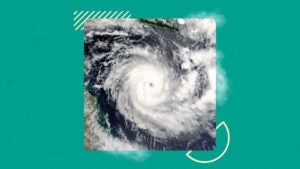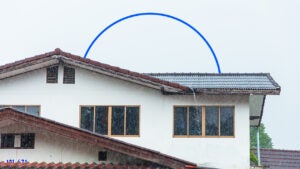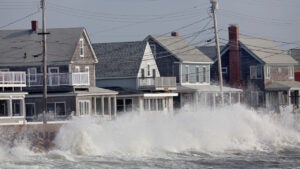The dos and don’ts of hurricane cleanup for insurance claims



As the 2024 hurricane season winds down, thousands of homeowners face the incredible challenge of cleaning up and starting over. Hurricanes Helene and Milton, which devastated portions of the Atlantic coast in September and October, are estimated to join the ranks of the most costly climate disasters in U.S. history — and for many, the disaster is far from over.
For many homeowners, a lack of homeowners and flood insurance means huge financial losses. But while having insurance on your home brings financial peace of mind, it also carries complications when it comes to cleanup. If you need to make an insurance claim after a storm, it’s important to understand what to do — and what not to do — in order to keep the claims process smooth and productive. Bankrate’s insurance editorial team reviewed best practices and spoke with industry experts to bring you a checklist of dos and don’ts for hurricane cleanup.
What not to do after severe storm damage
After a severe storm, getting back to normal is likely your first priority — and your home insurance policy exists to help you get there. But insurance companies often have strict expectations for policyholders following storm damage. In order to avoid problems with your claim, it’s important to understand what not to do during hurricane cleanup.
Don’t enter your home until it’s safe to do so
If your home has been damaged by a hurricane, don’t enter the building until it’s been inspected by a professional.
Gas leaks, fires, electrocution and structural collapse are all serious risks following a severe storm. If you’re not aware of your home’s condition, entering it could put you and your family in danger.
According to the Federal Emergency Management Administration (FEMA), the aftermath of a hurricane may actually carry a higher risk of injury than the pre-event phase. Follow all reentry guidance from FEMA and your local government before returning to your home.
Don’t start cleaning up immediately
As urgent as cleaning up your home may feel, don’t begin work without contacting your insurance company. They may want to send their own inspector to assess the damage to your home and begin the claim process.
Before you begin the cleanup process, talk to your insurance company. They’ll be able to give you instructions on when and how to begin cleaning your home. Be aware that this can be a long and slow process, particularly after a major storm.
As you begin to clean, resist the temptation to start throwing away destroyed items. Keeping these items, or documenting the damage through photos and videos, can help to support your home insurance claim.
Don’t wait to contact FEMA
If you live in a declared disaster zone, you don’t need to wait to file for assistance from FEMA. A one-time payment of $750 for Serious Needs Assistance is available to help you cover essentials like food, water and toilet paper.
Be prepared to provide information to confirm your identity as well as the location and condition of your home, if possible. Depending on circumstances, you may need to wait for a FEMA inspection of your home before you can receive these funds.
Don’t fall for scams
After a storm, untrustworthy actors may attempt to take advantage of desperate people — including you and your loved ones. These scams may take the form of people soliciting donations or impersonating government officials. You may also encounter fraudulent contractors or insurance adjusters who take your money and disappear.
The Federal Trade Commission (FTC) and Department of Justice (DOJ) advise homeowners to be cautious of storm-chasing scammers. Follow these steps when contacting or hiring contractors after a hurricane:
- Read any contract for cleanup, repairs or insurance assistance completely and carefully.
- Be wary of anyone requesting payment via app, cash, wire transfer or other nontraditional methods.
- Do not pay a fee to receive federal disaster relief.
- Research contractors and get written estimates from multiple companies.
If you suspect that you’ve been a victim of post-hurricane fraud, report it immediately to the authorities. You can do any of the following to report storm-related scams:
- Fill out a complaint form with the DOJ’s National Center for Disaster Fraud (NCDF) online.
- Call the NCDF at (866) 720-5721 (24 hours a day, seven days a week).
- File a report at ReportFraud.ftc.gov.
What to do after severe storm damage
Alongside these hurricane cleanup “don’ts,” there are some steps you should take after a storm. These range from general best practices to requirements in your home insurance policy that you may not be aware of.
Contact your insurance company immediately
Any time your home is damaged by severe weather — from hurricanes to thunderstorms to blizzards — you must contact your insurance company as soon as possible to report the damage.
Reporting a loss is one of the most important duties stipulated in a standard home insurance policy. By reporting the damage promptly, you allow your insurance company to initiate the claims process. You’ll also have an opportunity to ask your insurer about any other duties you may have, which could include:
- Creating an inventory of all damage to your property and personal possessions
- Taking steps to prevent further damage, such as by putting tarps over holes in the roof or boarding up doors and windows
- Allowing your insurance company to conduct an inspection of the property
- Cooperating with your insurer and their representatives throughout the claims process
Following a major storm, it’s a good idea to revisit your home insurance policy, especially if you were caught off guard and didn’t review it prior to the storm. Look for:
- Your coverage limits and deductibles: Understand how much your policy covers and how much responsibility you share for the cost of repairs.
- Your policy’s exclusions: Not all home insurance policies cover the same types of damage. Your claim could look different depending on the perils included or excluded from your policy.
- Your duties after a loss: Look for the section of your policy that outlines “conditions” or “duties after loss,” which will explain the steps you agreed to take when you originally signed the insurance contract.
Start gathering documents and photos
In order to file a claim to repair and replace your damaged property, you must document everything. You should:
- Take photos and videos of the damage to your property.
- Find photos of your home prior to the damage for the purpose of comparison.
- Gather receipts for all damaged property, if possible (remember to check for online bank statements and email receipts).
Don’t just document the damage to your home. Rick Tutwiler, President of Tutwiler & Associates Public Adjusters, Inc. in Tampa, Florida, advises policyholders to keep a “journal” of all interactions with insurance adjusters following severe storm damage. By documenting your communication with your insurance company, you can help to streamline the claim process, especially if it’s drawn out over weeks or months.
During the life of an insurance claim, it’s not uncommon for people to have three, four, sometimes even six adjusters. If you’re not keeping accurate notes of every conversation of who you talked to and the dates, you’re essentially starting over with somebody who comes in new.— Rick Tutwiler, President & CEO, Tutwiler & Associates Public Adjusters, Inc.
Provide proof of regular property maintenance
To support your homeowners claim, you may want to gather evidence that you have been a responsible homeowner leading up to the storm. Receipts from annual furnace tune-ups, gutter cleanings and any hurricane storm prep you invested in can help to demonstrate that any damage you’ve documented following the storm was not caused or aggravated by neglect.
Follow official safety guidelines
As you dive into cleanup, remember to follow safety guidance from the Centers for Disease Control and Prevention (CDC). Floodwater, mold and damaged structures all present significant safety hazards. Use the guides below to avoid exposing yourself and others to further danger during the cleanup process:
- If you’re dealing with mold: Homeowner’s and Renter’s Guide to Mold Cleanup After Disasters
- If your home has electrical damage: What to Do to Protect Yourself From Electrical Hazards
- If you need to remove animal carcasses: Disposing of Dead Animals After a Disaster
- If you’re using a chain saw: Chain Saw Safety
- If you’re dealing with a power outage: What to Do to Protect Yourself During a Power Outage
Consider hiring a public adjuster
For the damage to your home is extensive — or if you’re feeling overwhelmed just reading this list of dos and don’ts — it may be in your best interest to hire a licensed public adjuster to assist with your insurance claim.
If you’ve never hired a public adjuster before, you may be wary of adding yet another insurance professional to the mix — after all, doesn’t your insurance company have adjusters? But, Tutwiler points out, an insurance company’s staff adjusters are working with the insurer’s best interests in mind — not yours. “We’re the only licensed adjusters who can advocate on behalf of the policyholder.”
While working with a public adjuster isn’t required, it can help to expedite and streamline a large home insurance claim, especially if it’s your first time navigating the process. “What’s interesting,” Tutwiler says, “Is people who have been through the claims process before — they’re typically calling their public adjusters back right away. They’ve been through the claims process before, and they understand the value of having a licensed professional there to help them.”
While hiring a licensed public adjuster is a legitimate way to get help with a home insurance claim, it’s not without risks. Just like fraudulent contractors and other storm-chasing scammers, some adjusters may not be trustworthy. Keep the following in mind when choosing a public adjuster:
- Your adjuster should be licensed: You can use the directory of the National Association of Public Insurance Adjusters (NAPIA) to find a licensed public adjuster in your area and check the details of their credentials.
- Your adjuster should have a good reputation: Talk to family, friends and neighbors or look for local reviews for a few adjusters in your area. Don’t hire an adjuster without checking their references.
- You should read the fine print: Make sure that you understand all the details of your agreement with an adjuster before signing a contract. In particular, it’s important to understand their payment expectations. Typically, a public adjuster will take a certain percentage of your claim payout as payment, so factor this in before making a final decision.
- You shouldn’t pay upfront for a phone call: Be wary of any public adjuster who charges upfront for services such as an initial phone consultation.
The bottom line
After a severe storm, it’s easy to feel overwhelmed. Understanding the best practices for storm cleanup from an insurance perspective can help you make the most of the coverage you pay for and eliminate some of the confusion that can follow a disaster.
Why we ask for feedback Your feedback helps us improve our content and services. It takes less than a minute to complete.
Your responses are anonymous and will only be used for improving our website.
You may also like

Experts say the 2024 hurricane season could break records. Here’s how to prepare

Summer home prep: How to avoid costly damage and insurance claims

Hurricane season is here. Will your insurance policies weather the storm?

